Social Capital Matters
What businesses need to know to thrive
A series of conversations with thinkers, leaders and change-agents exploring how organisations build social capital with their stakeholders in today’s complex, interconnected and volatile times.
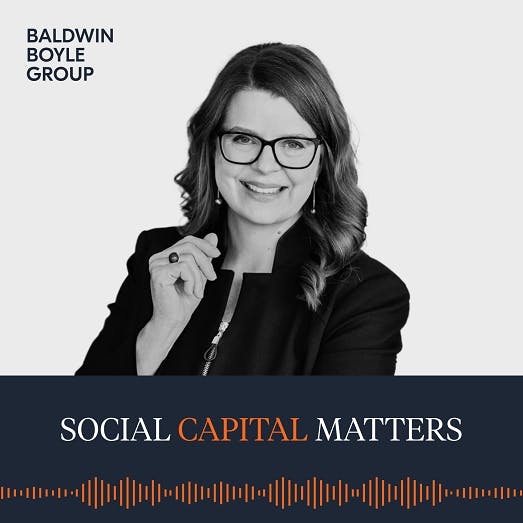
episodes
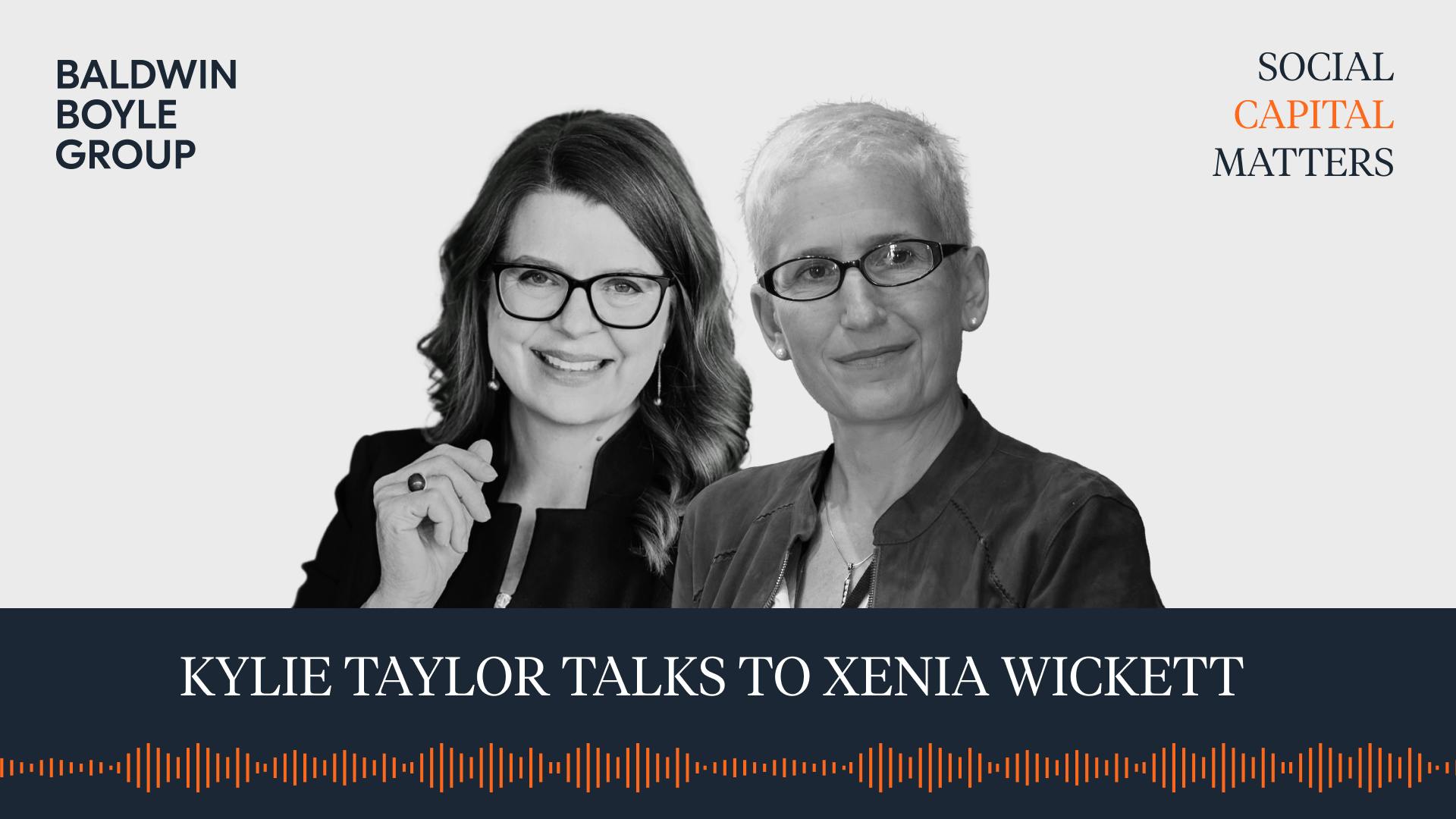
Why your leader’s approach to geopolitics could make or break your company | Xenia Wickett (S2.E1)
The global businesses landscape is incredibly hard to navigate these days, making it a complex and unpredictable environment to compete in. Issues such as climate disruption, political upheavals and demographic challenges create immense barriers – but these challenges also often provide immense opportunity for leaders who can make the right decisions quickly. As international relationships change, fracture and are made anew, leaders are called upon to evaluate how – or if – they need to react. It is at this point that Xenia Wickett, Director of Wickett Advisory, is often asked for her counsel. Understanding how to navigate these challenges is a vital skill that effective leaders must understand and master if they desire to remain competitive in a workplace environment that will only move faster as we go forward.
Xenia Wickett is a moderator, coach and executive advisor who helps senior leaders make more informed decisions about the way forward when their organisation is confronted with uncertainty or complexity.
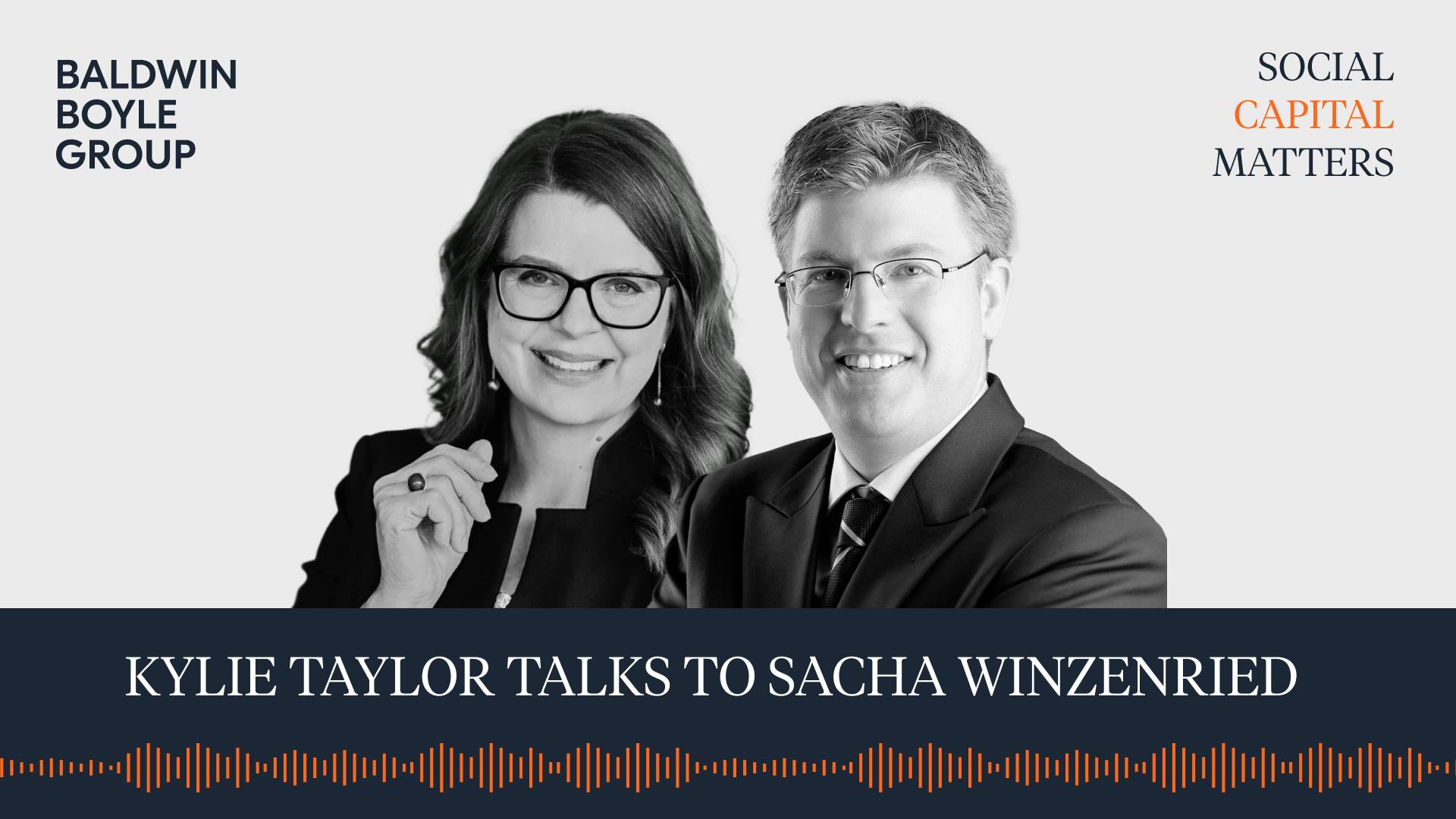
How the energy transition will give leaders opportunities to create value | Sacha Winzenried (S2.E2)
The global energy landscape is at a crossroads, a factor which is acutely felt in emerging markets such as Southeast Asia. As consumers continue to gravitate toward electric cars and renewable energy, businesses and countries are taking a cold, hard look at their fossil fuel infrastructure and long-term strategies for moving away from them. In Asia and the Pacific, which produces over 50% of Earth’s CO2 emissions, the big question surrounding this energy transition is, how? In our discussion with Sacha Winzenried, the Energy, Utilities & Resources Leader at PWC Indonesia, we learn just how complex this process will be and the difficulties in making it a just and orderly transition in a region dealing with broad inequality and still dependent on fossil fuels for electricity production. However, smart companies will recognize the opportunities for value creation and new business ideas – that is, if they are able to communicate their strategies effectively and bring their stakeholders along with them.
Sacha Winzenried is a specialist in energy, utilities and mining. He has spent 24 years in Indonesia finding solutions for complex problems around energy, climate change and economics.
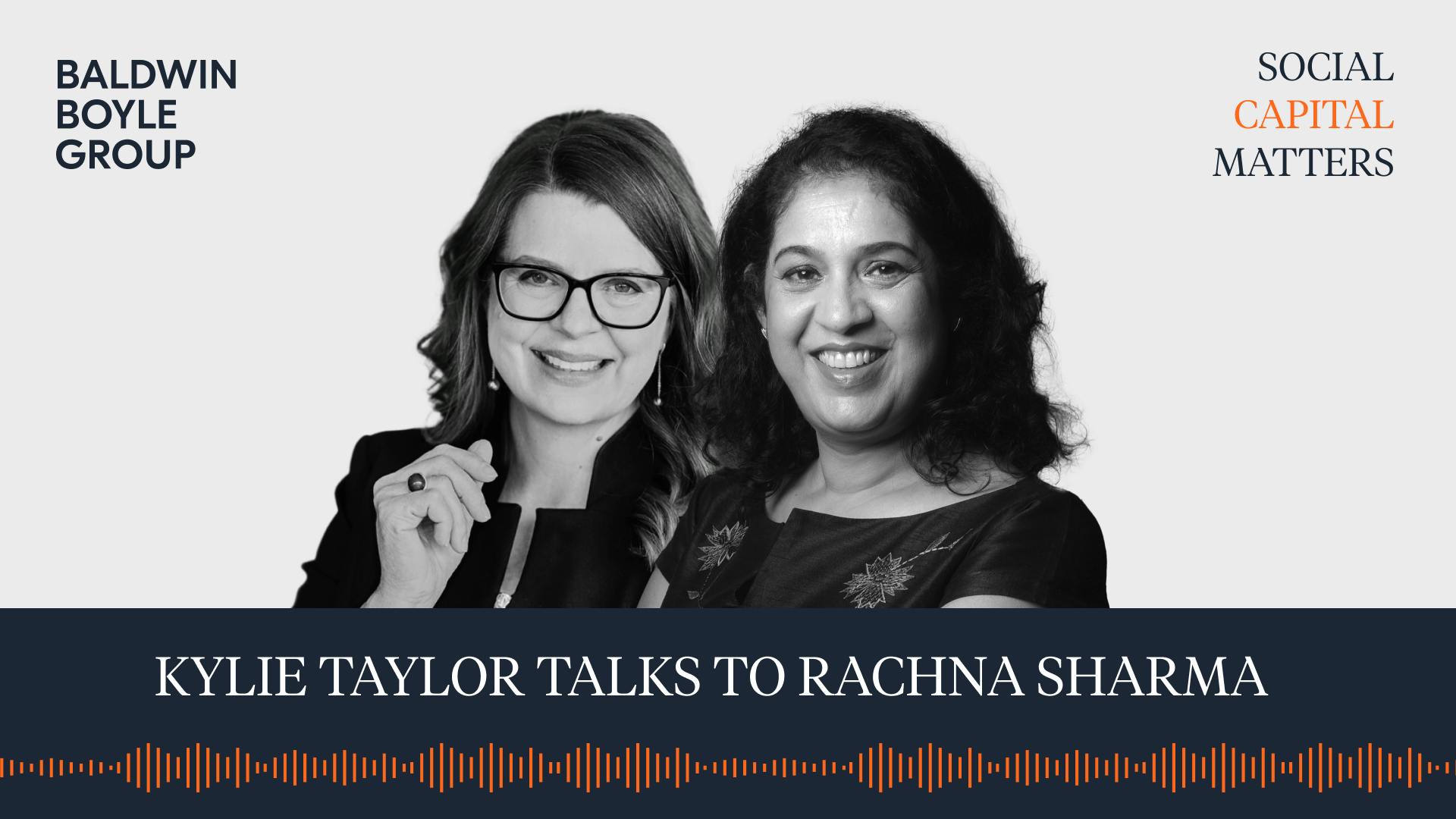
How climate ready leaders can prepare for a change that surpasses the internet | Rachna Sharma (S2.E3)
Rachna Sharma operates in a region where more than 80% of power production comes from fossil fuels, and it’s her job to educate decision-makers on the importance of addressing climate change. In this episode, Rachna talks about how board members, the c-suite and leaders can get to grips with their climate risk, drive change, and address stakeholder concerns. We also discuss how companies can build their social license in markets where customers are expecting more, and shareholders are willing to rebel if they aren’t seeing enough done. Likening the current stage of the climate crisis to the early days of the internet, Rachna Sharma, CEO of Climate Ready Leaders, says the climate crisis is really a communications crisis, as decision makers often lack the understanding necessary to make climate data clear and actionable.
A communicator with over 25 years of experience in India and internationally, Rachna Sharma’s expertise spans communications for development, corporate sustainability, social purpose and impact. She has worked with clients at the most senior levels across the Asia Pacific, where she has led highly impactful, globally acclaimed work.
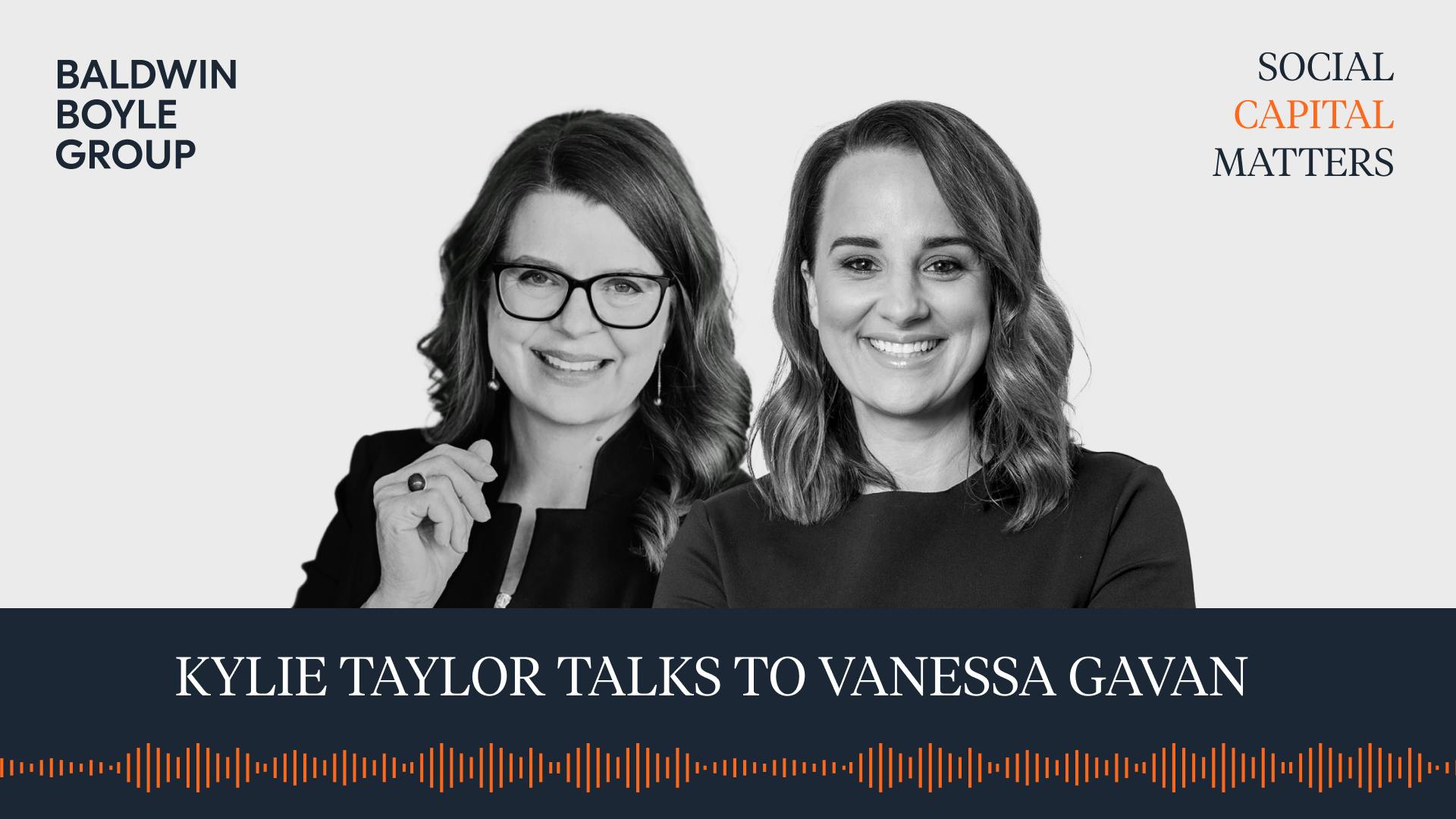
Why building belief and belonging is vital for attracting next gen employees | Vanessa Gavan (S2.E4)
Volatile and fragmented are the words Vanessa Gavan, founder of Maximus International, uses to describe today’s business environment. Climate change, geopolitical uncertainties, distributed workforces, stark differences between the views of older and younger staff, information overload from social media - these are all factors that leaders would not have had to contend with 15 years ago. Added pressure comes from the growing expectation among employees and stakeholders that a company’s values should reflect their own, and that it must have a purpose that goes beyond profit. Many leaders struggled to manage this cultural conundrum and fail to orient their people toward a shared future. Vanessa sees these challenges as opportunities, not only to go back to the basics and build a new way of working, but to tap into the skills and talent of Gen Z and Millennials to help create more inclusive, effective, robust businesses for the future. Drawing on her background in psychology and the two decades since she founded her company, Vanessa explains how leaders can tackle the world of office politics and deliver the tangible outcomes stakeholders expect.
Vanessa Gavan is the visionary founder behind Maximus International, one of Australia's leading performance impact organisations. During its two decades of operation, Maximus has carved out a distinct niche by delving deep into the intricacies of human behaviour, harnessing the power of emotional intelligence to drive impactful change.
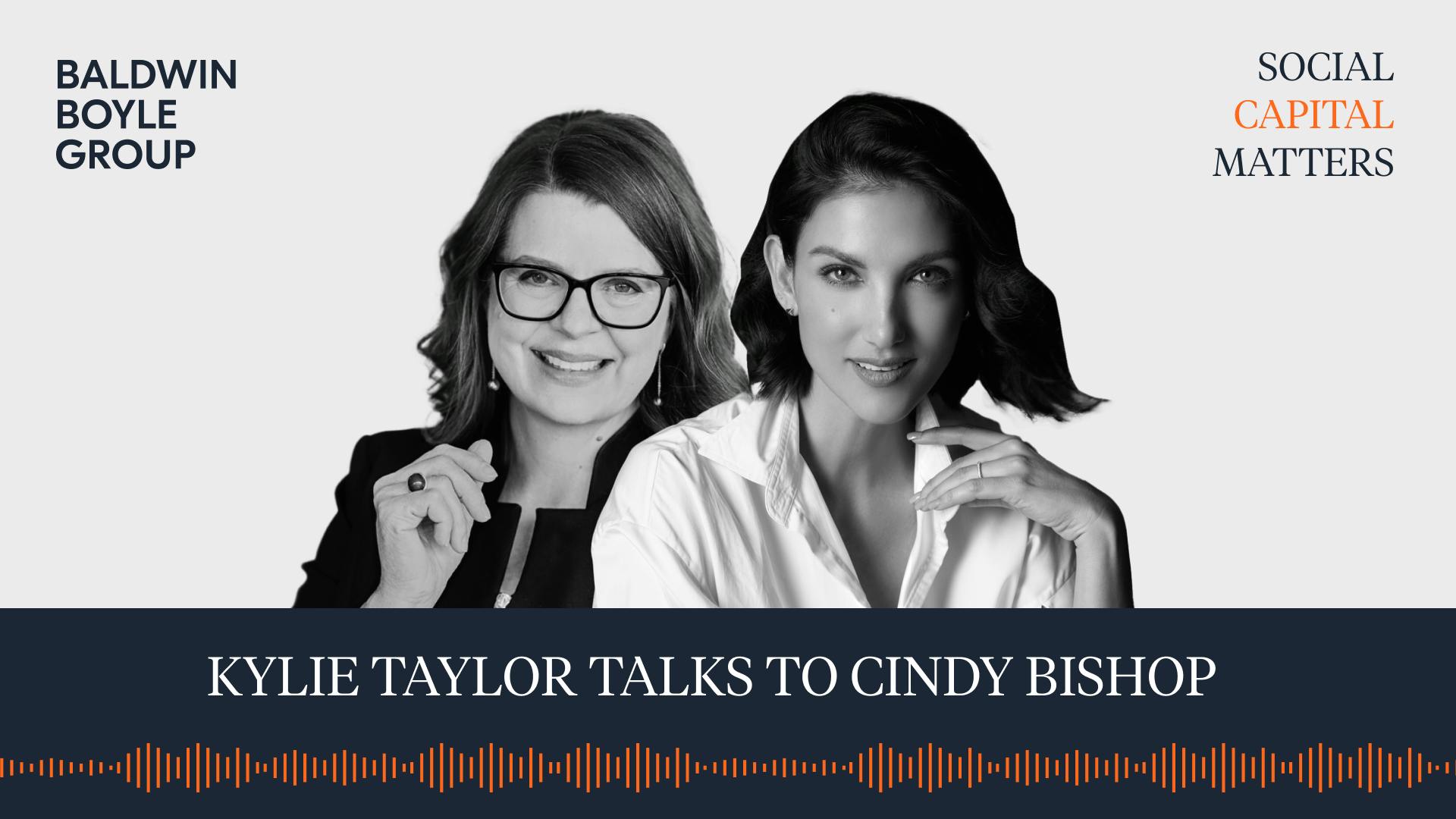
How Asian companies can thrive by creating better opportunities for women | Cindy Bishop (S2.E5)
The issue of gender inclusion, equality and equity is a hotly debated topic in many western workplaces, but change often comes more slowly in Asia’s more conservative company cultures. After an off-the-cuff social media post in 2018, Cindy ‘Sirinya’ Bishop sparked the #DontTellMeHowToDress social movement that brought the harrowing reality of gender-based violence in Thailand to the fore and helped push for greater gender equality and inclusion. Using her platform to move the conversation from the public square into the boardroom, her focus is on highlighting how a safer, more diverse and equal workplace will be more creative, innovative and productive. In environments where women need to work harder and speak louder simply to be heard, this often requires grassroots initiatives to push things forward. Cindy also confronts the problem with hollow displays of tokenism and explores how to remove gendered roadblocks that prevent companies from evolving.
Cindy Bishop is a television host, actor, model, UN Women Goodwill Ambassador to Asia Pacific, and founder of the #DontTellMeHowToDress social movement against sexual assault and gender-based violence.
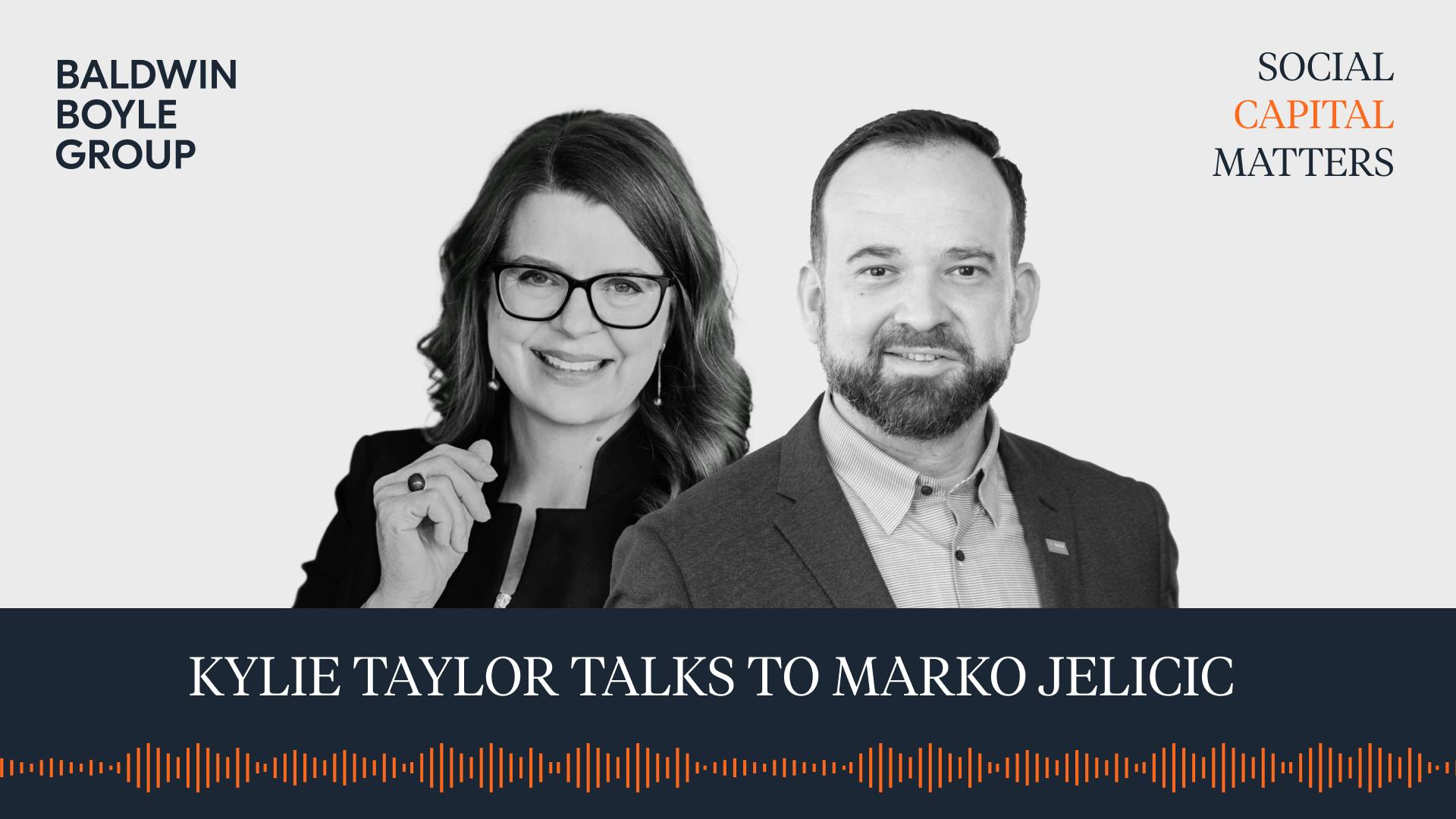
Why communication is key in fostering a sustainability culture at BASF | Marko Jelicic (S2.E6)
Getting more than 100,000 employees to buy into the idea that ESG and sustainability makes good business sense can be a monumental task. BASF, which operates across diverse sectors ranging from healthcare products to petrochemical solutions, works hard to make sustainability a core part of every employee’s work ethic. Effective communication that resonates with teams across vastly different cultures, social strata and job roles is critical to make the sustainability message stick. Marko Jelicic, Communications & Advocacy for BASF South East Asia Pte. Ltd., discusses how BASF created, nurtured and has grown such a culture, and how he avoids the “sea of sameness” that marks the death knell of corporate sustainability efforts.
Marko Jelicic is responsible for Communications & Advocacy for BASF South East Asia Pte. Ltd. He has been with the company for 11 years.
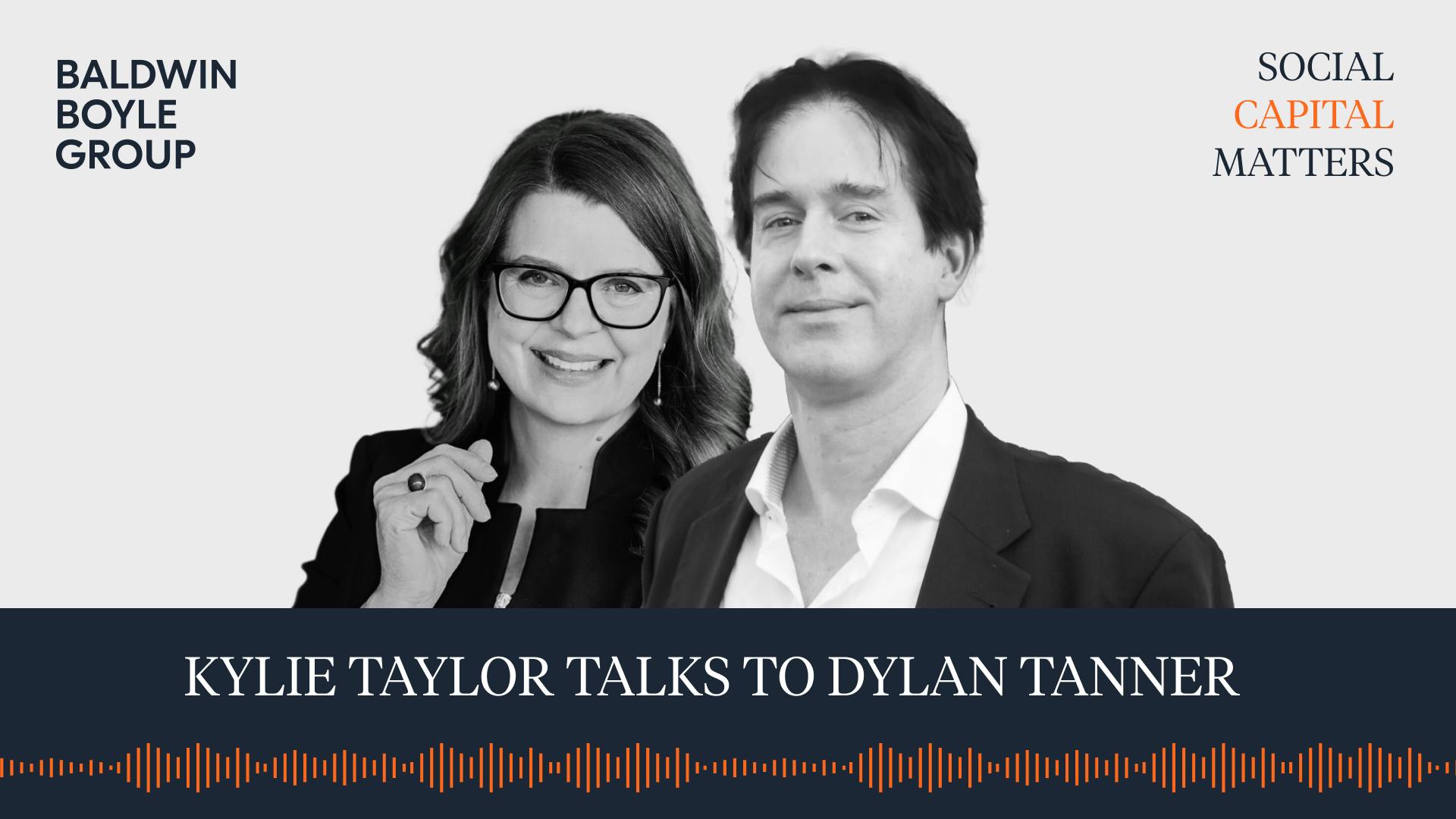
How tech lets investors separate substance from spin in today’s ESG landscape | Dylan Tanner (S2.E7)
When stakeholders want a look at a company’s ESG record, it’s easy to head to its website and wade through reports, audits and press releases. But sometimes, this just isn’t enough. Going deeper requires more detective work and often yields surprising results from unfamiliar sources. Dylan Tanner, executive director of InfluenceMap, leads a team that analyses financial disclosures, investor communications, hard scientific data and social media, as well as issuing freedom of information requests, to get clear, fact-based insights into the real ESG footprint of a company. Armed with this information, investors, corporate leaders and policymakers are empowered with a true understanding of where a company stands on its commitment to help combat the climate crisis - including the funding of research and lobbying that may run counter to public commitments - and can make better-informed decisions to guide policies to create a cleaner and more responsible business culture.
Dylan Tanner co-founded InfluenceMap in 2015, on the eve of the Paris Climate Agreement. Today, InfluenceMap provides bespoke analysis of the climate agenda and has been used by hundreds of investors and informed numerous campaigns. The organisation is best known for its platform for analysing corporate lobbying on climate policy. As Executive Director, Dylan holds overall responsibility for its global operations.
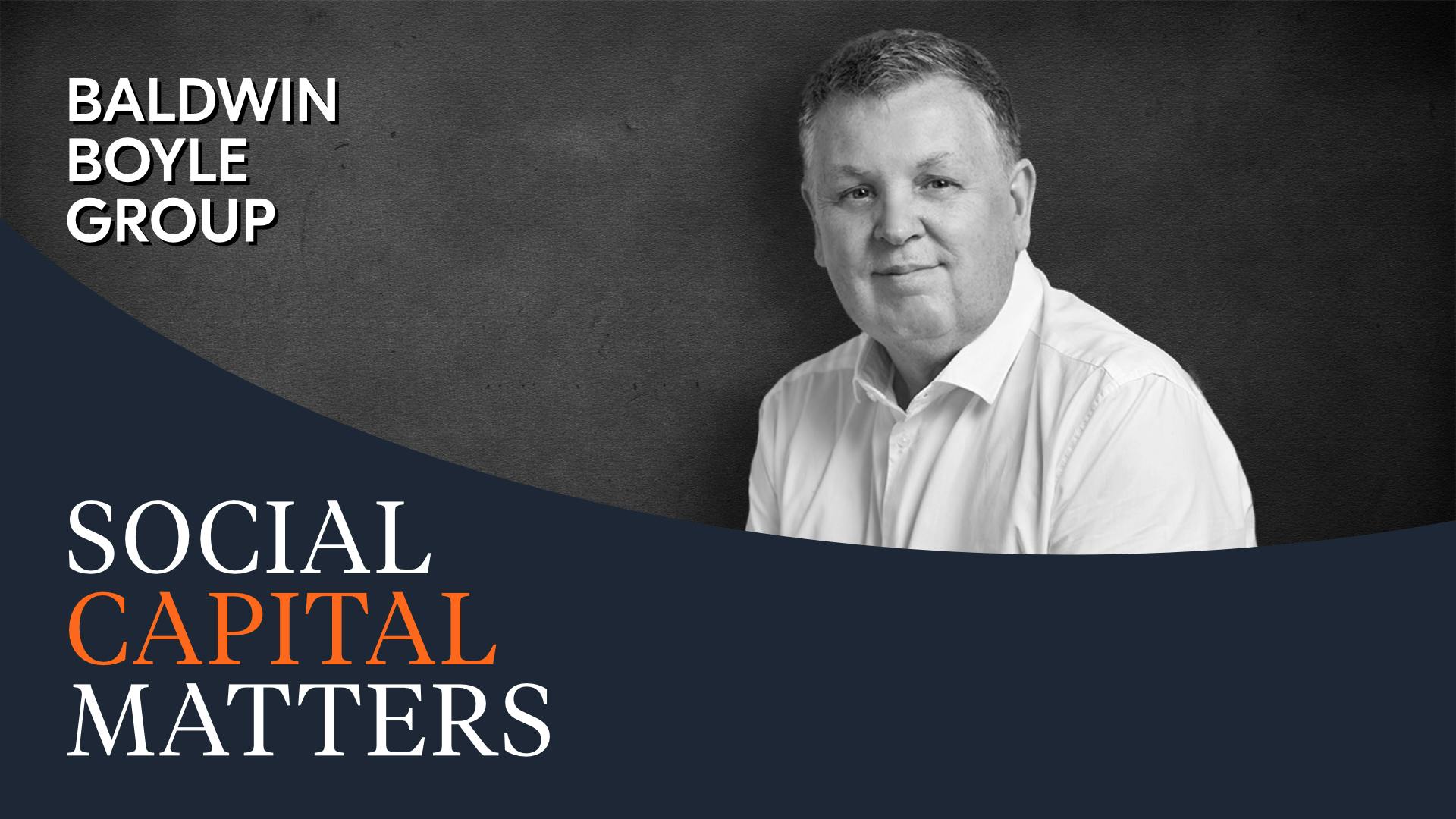
Asia is redefining old concepts of East & West, left & right | David Black (S1.E1)
Asia’s business landscape has seen rapid change over the past few years, with old structures and hierarchies making way for a dynamic new social and cultural landscape. To stay ahead of the curve, any company that wants to do business in Asia must know how to react to these changes while understanding that the old rules of “East vs West” simply don’t apply anymore. On the other end of the scale, Asian companies need to be especially ready to meet the needs of Gen X and Gen Alpha, who are looking for more than just a paycheck and a desk if they want to stay engaged in their work and loyal to their employers.
David Black is founder and CEO of Blackbox, one of the region’s leading research and advisory firms, specialising in decision science solutions. By gathering data, talking to people, and analysing trends, Blackbox provides its clients with solutions to problems and advice on how to navigate social changes before they occur.
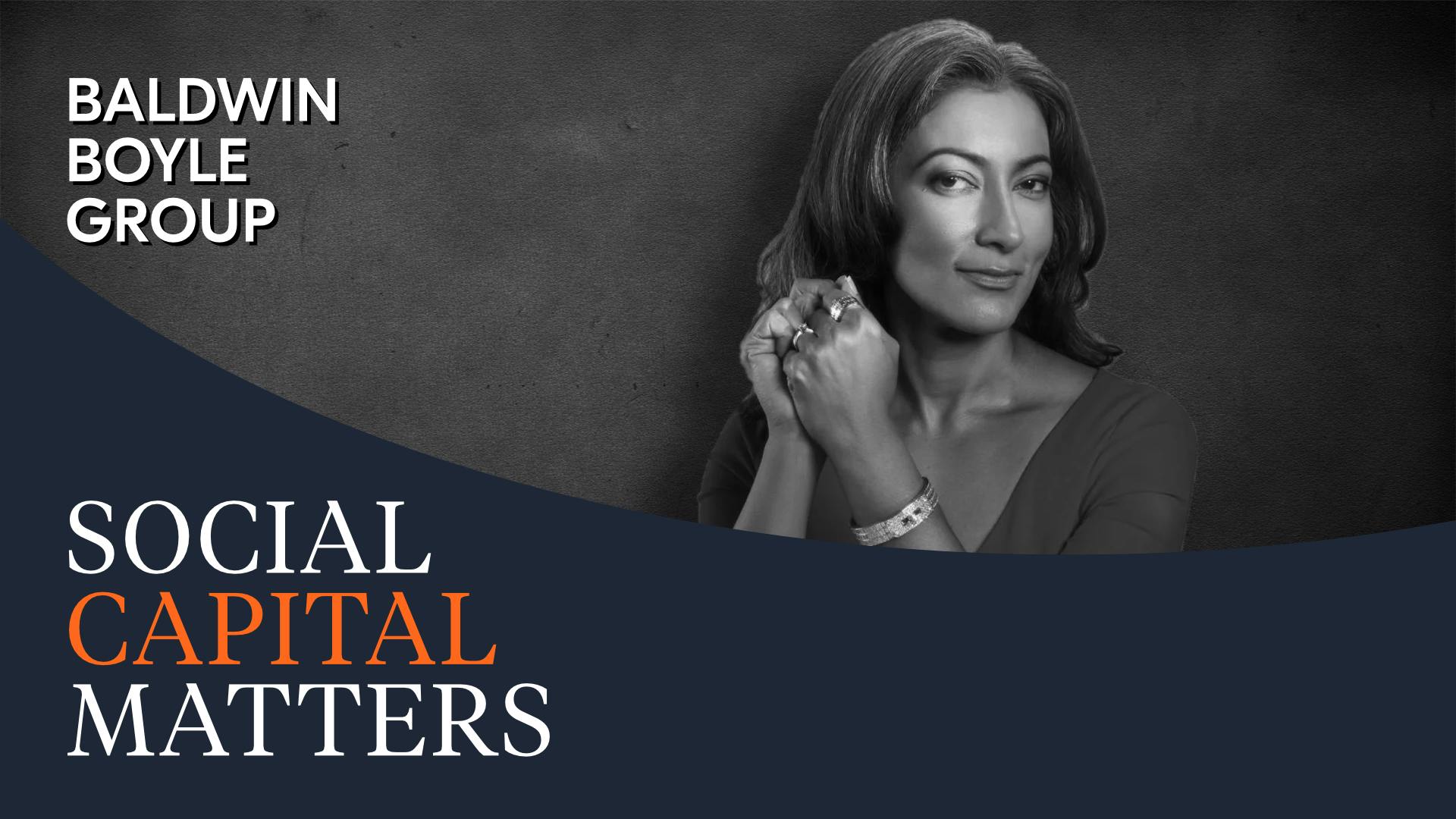
Selective transparency won’t fool the media | Sharanjit Leyl (S1.E2)
The sheer number of ways a journalist can do their job nowadays is staggering, and doing business amid a connected and inquisitive media landscape can be intimidating. With the power of social media and online platforms, news spreads rapidly, and any misstep or questionable behaviour by a company can quickly lead to reputational damage, loss of customer trust, and a decline in sales. Implementing processes that prioritise transparency, ethical practices, and open communication is vital, and understanding how the media works when building stories on these issues is an important skill to have.
Sharanjit Leyl is a veteran business journalist and commentator. She’s spent 18 years working for the BBC throughout Asia Pacific and around the world, interviewing some of the world’s top political and business leaders as well as moderating and chairing a wide range of panels and conferences.
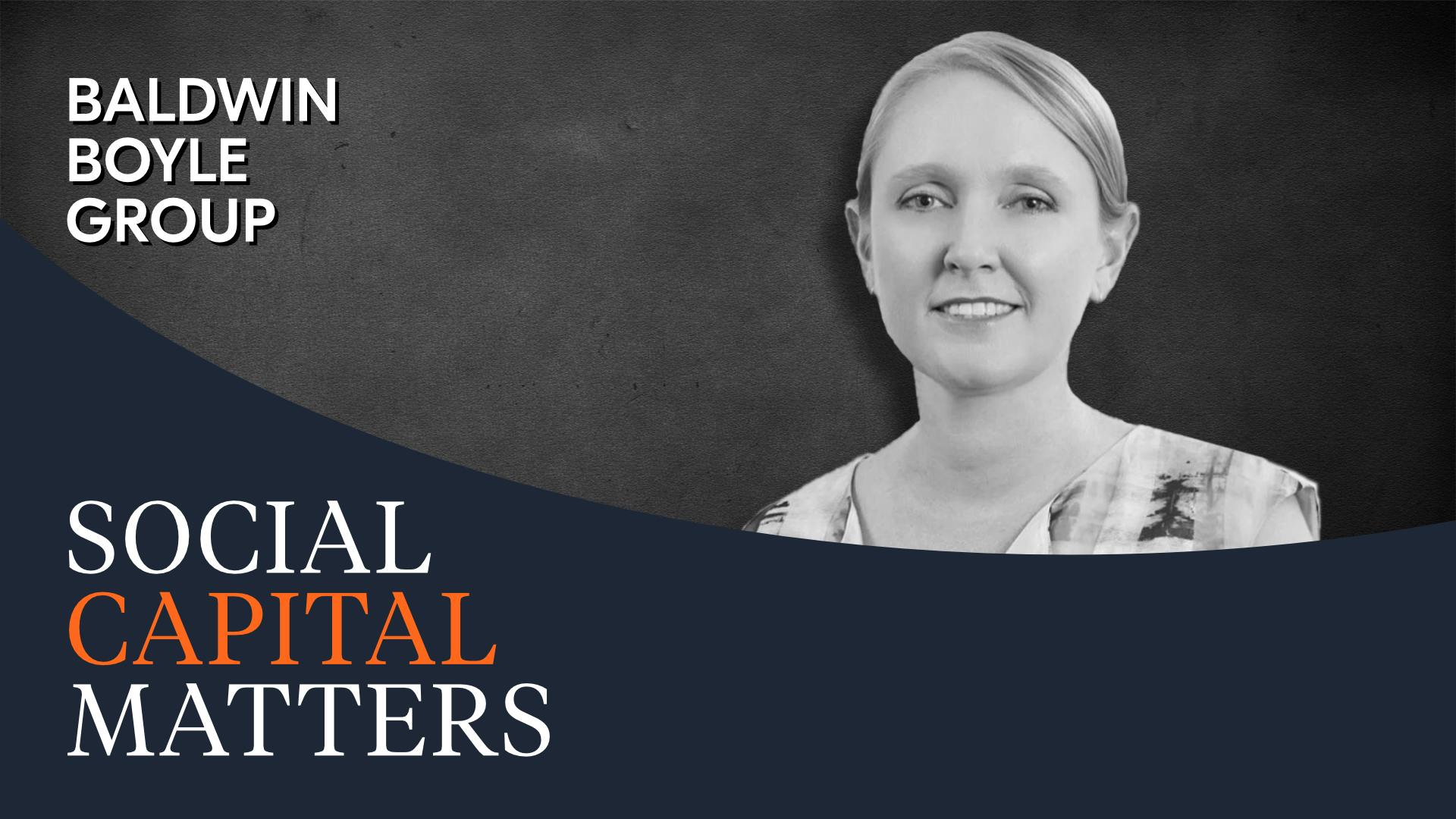
Ignoring sustainability is no longer an option | Dr Darian McBain (S1.E3)
As ESG issues continue to play a role in the public discourse, companies must be sure to reflect these ideals in their day-to-day operations to reduce their ecological footprint, promote fair labour practices, and enhance accountability. By the same token, the days of claiming ignorance when supply chain abuses come to light are over. In today's interconnected world, consumers demand transparency and accountability from the companies they support. It is only by embracing ESG principles and implementing supply chain transparency that companies can build a positive brand image and foster long-term success.
Dr Darian McBain is a globally experienced Chief Sustainability Officer, and a world recognised expert, speaker and author on sustainability, ESG, supply chains, business human rights and sustainable finance. Currently she is the head of OCSO, a Singapore-based advisory firm that enables businesses to run a sustainability function without hiring a full-time chief sustainability officer.

Employees are calling the shots as workplace power shifts | Sue Stoneman (S1.E4)
The workplace has gone through a rapid and consequential shift over the past few years, not only in the form of the ‘great resignation’ but also in how companies communicate with their stakeholders. To attract and retain staff companies must also understand that employees don’t just want to know what a company does – they want to know why they do it. Understanding how to embed these values in a company culture can quickly mean the difference between success and irrelevancy.
Sue Stoneman is founder and chairperson of NKD, a world-renowned agency that helps organisations evolve into a company and brand that their employees fall in love with and stay in love with. In her time at NKD she has worked with companies as varied as airlines, banks, logistics companies and supermarkets. Her globe-spanning list of clients include some of the world’s largest companies who boast some of the most engaged workforces in their industry, and are the envy of their competitors.
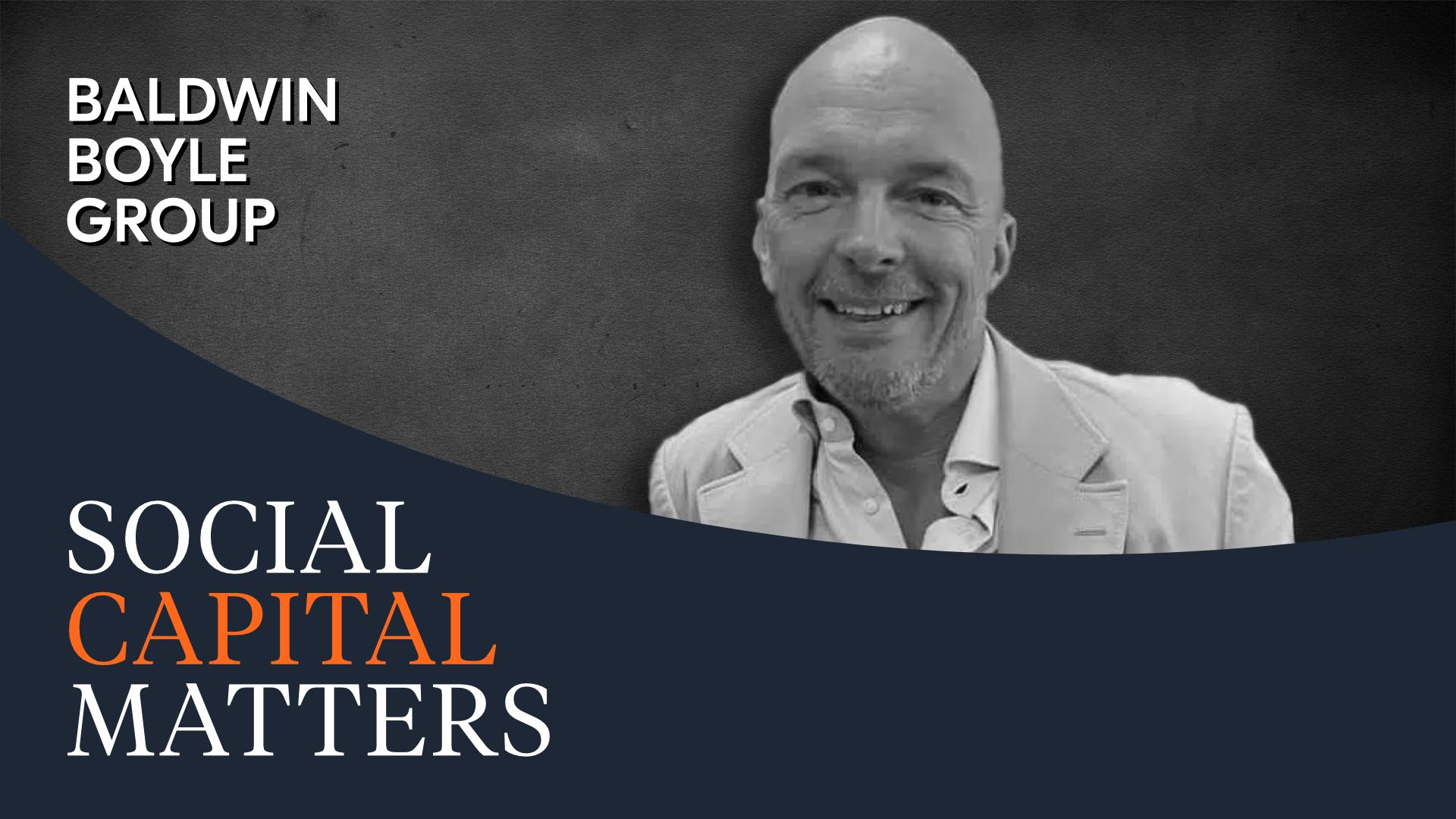
Purpose is about solving real problems | Christian Ihre (S1.E5)
Embedding purpose in a company's culture provides a guiding light that aligns employees, stakeholders, and strategies towards a common goal. More than simply a vision of where a company wants to end up, purpose is deeply ingrained in a company's culture, fostering a sense of meaning and fulfilment that attracts like-minded employees, customers, and partners who are passionate about the company's values and contribute to its growth. But how does a company with no defined purpose find one? More importantly, how does it embed it in the company culture in an organic and authentic way?
Christian Ihre is the co-founder of Lynxeye, a strategy consultancy that helps companies navigate transformative shifts to find their purpose and make a real difference in the lives of their customers and employees. As companies think more about customer preferences, regulatory change, skills shortages and technology disruption, Lynxeye helps companies see that the future will belong to companies who take bold steps to make a difference.
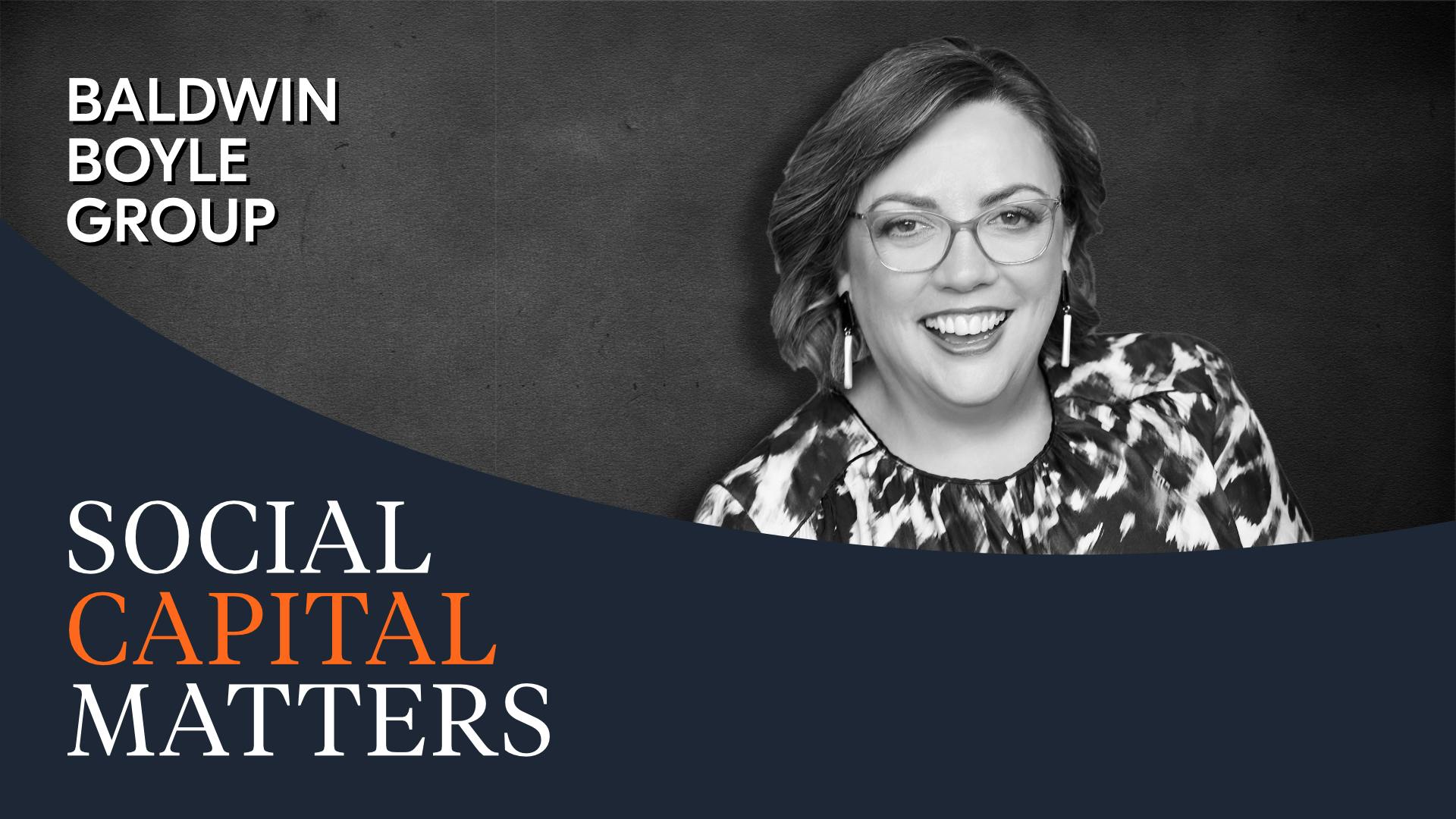
Cultural literacy is key to success in the age of distrust | Melissa O’Neill (S1.E6)
Corporate communications plays a crucial role in shaping and maintaining a company's culture, communicating its purpose, values, and key messages both internally and externally. But while the core skills have remained largely unchanged over the years, the business environment is much different. Not only do corporate communications leaders create a culture of trust, collaboration, and engagement within the organisation, it contributes to shaping a positive brand image and reputation through strategic storytelling and engaging external stakeholders.
Melissa O'Neill is one of Australia’s leading corporate affairs professionals and has played a critical role in advising senior executives on public affairs, sustainability, reputation management and crisis communications. She is passionate about getting leadership teams to take a holistic view encompassing the total stakeholder environment.





